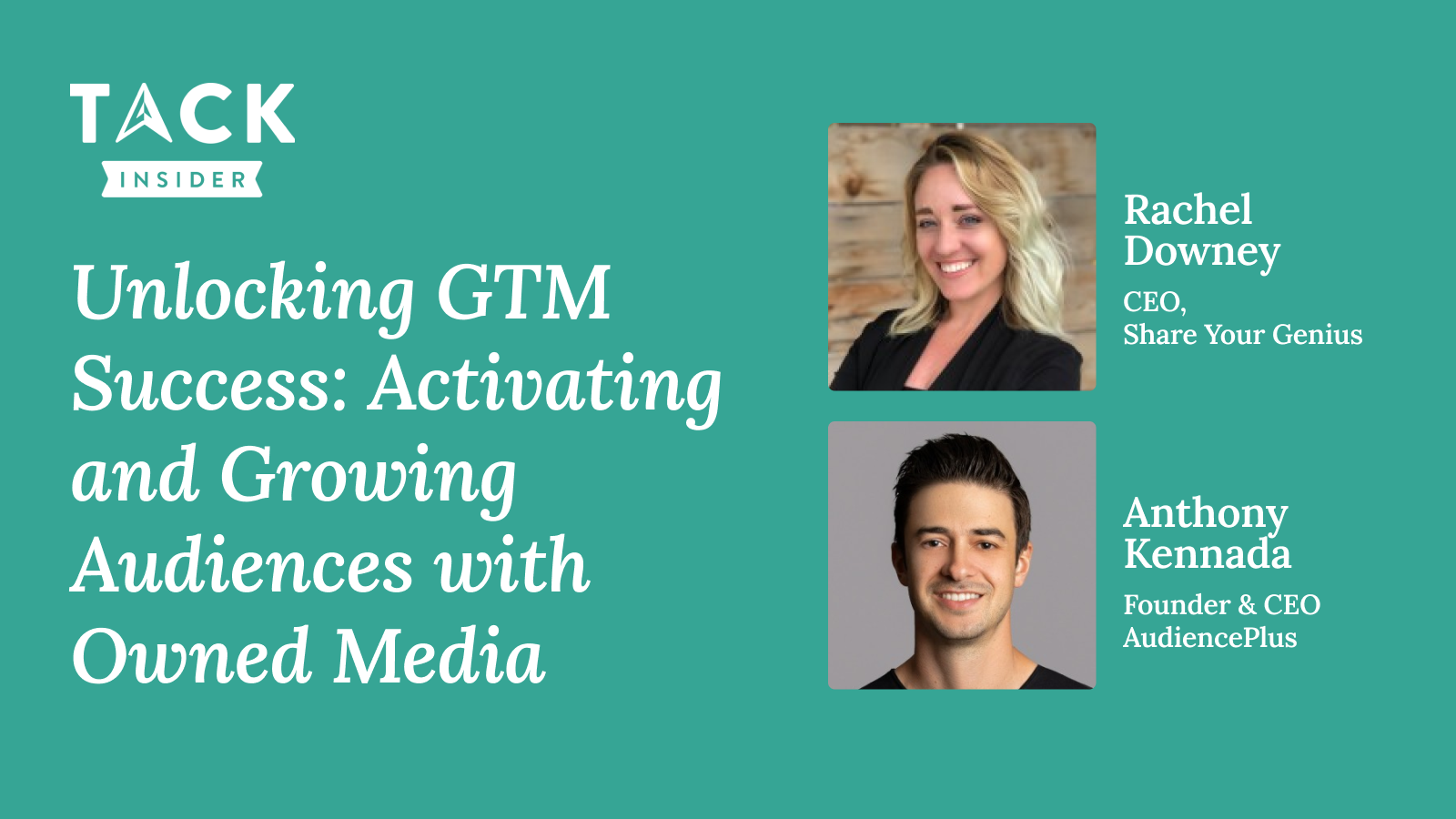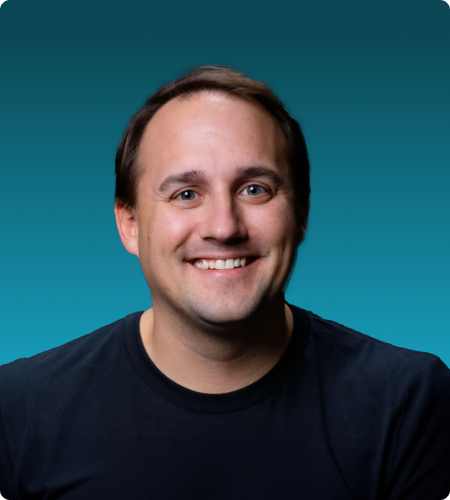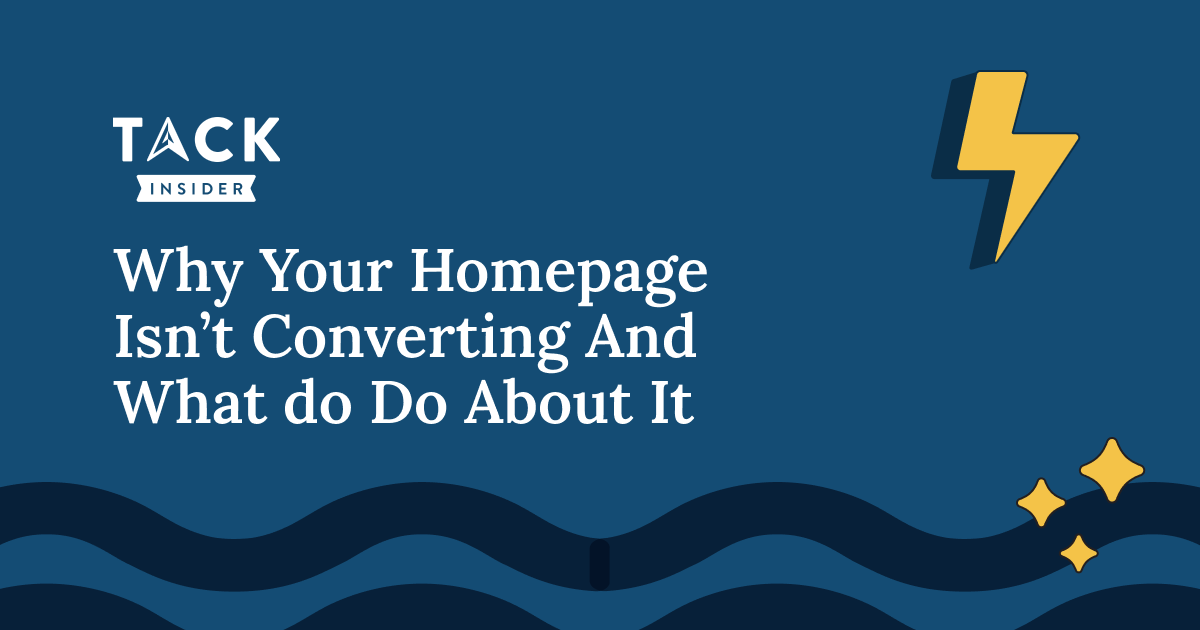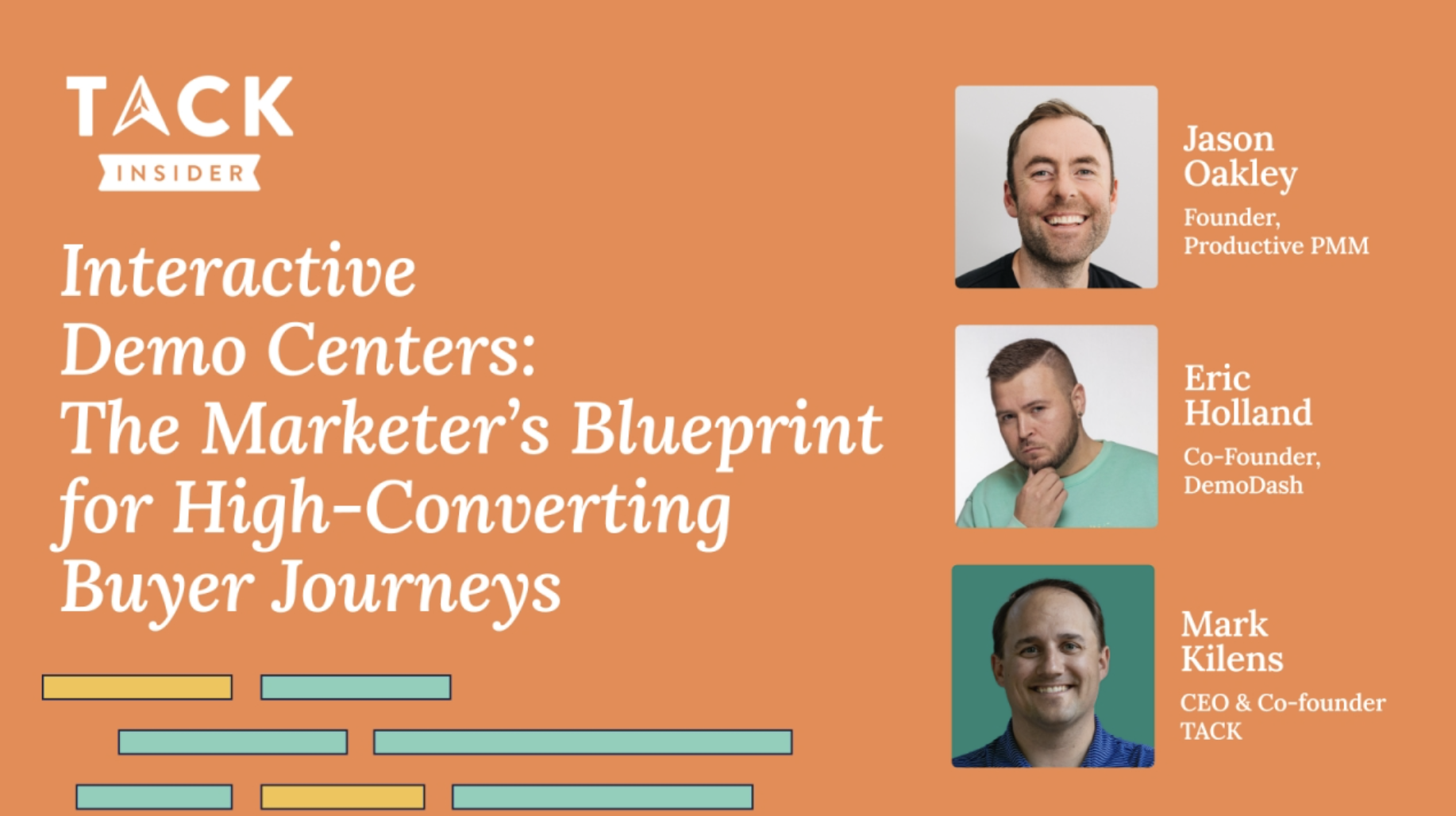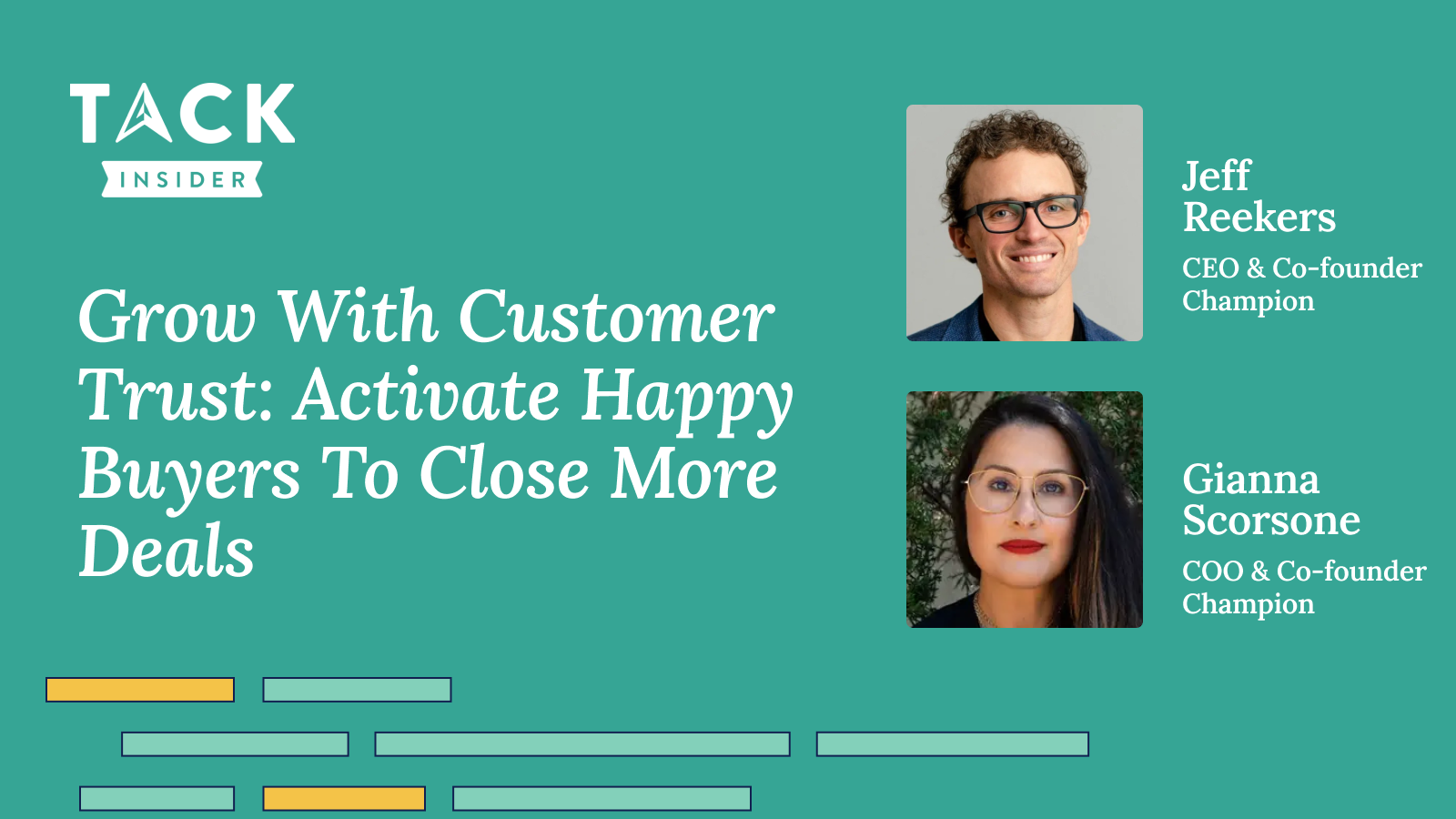Hosted by: Mark Kilens, CEO & Founder at TACK
Speakers: Rachel Downey, Founder, Share Your Genius | Anthony Kennada, Founder & CEO, AudiencePlus
Overview
The marketing playbooks that fueled B2B growth for decades aren't just outdated—they're actively failing. In a recent TACK Insider session, host Mark Kilens sat down with Anthony Kennada (CEO, AudiencePlus) and Rachel Downey (Founder, Share Your Genius) to unpack why the shift to owned media isn't just a trend but a necessary evolution. Their conversation cuts through the noise and offers a grounded framework for turning your brand into a media engine that builds trust, resilience, and real pipeline.
Check out the full slides of the webinar
The Old Playbook Is Broken
Search-optimized blog posts, paid ads, and organic social once formed the holy trinity of B2B marketing. Today, all three are underperforming.
Algorithms throttle reach. Paid media efficiency is in decline. And audiences aren’t reading blog posts—they’re watching videos, listening to podcasts, and looking for content that feels personal, not polished.
What used to work doesn't anymore. And even the original creators of the old playbook (like Marketo co-founder Jon Miller) are saying it's time for a reset.
"You can't do owned media without rented. But if you're only on rented platforms, you're playing by someone else's rules."
What Owned Media Actually Means
Owned media isn't just a new label for content marketing. It's a shift in mindset from traffic to trust, from impressions to subscriptions.
In consumer media, the funnel isn’t awareness-to-purchase. It’s rented → owned → monetized:
Rented: Where you find audiences (YouTube, LinkedIn, Spotify)
Owned: Where you convert them into subscribers (email lists, community platforms)
Monetized: Where trust turns into action (demo requests, renewals, referrals)
The goal? De-platform your followers. Build a direct relationship. Use that first-party data to make smarter decisions and drive measurable outcomes.
Storytelling > Content
"Content marketing" used to mean writing articles for SEO. Today, it needs to mean something more human: storytelling.
Rachel Downey puts it plainly: the content marketer's job is gone. The new role is brand storyteller. Someone who:
* Creates emotional connection
* Inspires action, not just awareness
* Crafts repeatable experiences with measurable outcomes
And her starting point? Not formats. Outcomes. Every media asset—a podcast, a video series, even a blog post—should tie back to one of three goals:
* Build brand equity
* Generate or accelerate pipeline
* Attract and retain talent
How to Launch an Owned Media Engine
You don’t need a massive team or budget to start. You need clarity. Downey offers a simple four-step framework:
- Outcome: What strategic business goal are you supporting?
- Audience: Who are you creating for?
- Distribution: Where will they find it?
- Show design: What format will deliver the most value?
Podcasting is a powerful entry point: it’s lightweight to produce, repurposable across channels, and builds depth with your audience.
But no matter the format, quality matters. A few non-negotiables:
* Always create a content brief before hitting record
* Design the guest experience intentionally—they're your best amplifiers
* Invest in small touches: branded intros, lower thirds, solid editing
Rethinking ROI
Owned media doesn’t always yield short-term attribution, but it builds long-term equity. That doesn’t mean you can’t measure it.
Think beyond downloads. Track:
- Subscriber growth
- Time spent with content
- Account-level engagement from known prospects
- Down-funnel influence (e.g. reactivating a stalled deal)
Companies like Zuora are embedding media into their go-to-market, renaming campaign teams to "audience marketing" and giving them budget to produce shows for different buyer segments. This isn't fluff. It's functional.
Key Takeaways
- The old B2B playbook isn’t working; trust and attention now require owned channels
- Owned media turns content into a strategic asset by focusing on first-party relationships
- Outcomes-first planning keeps media efforts aligned with business goals
- Storytelling and guest experience are non-negotiables for quality content
- Long-term impact is real—but you have to know what to measure

